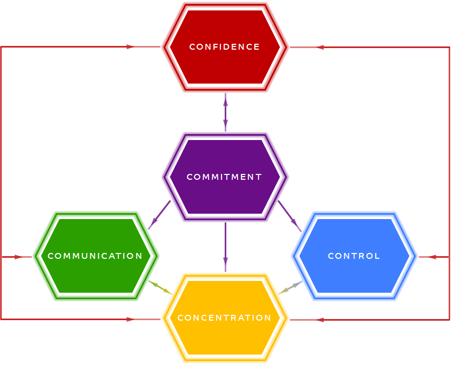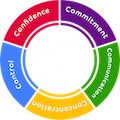
Make no mistake, parents are significant stakeholders in youth sport whose role is as varied as it is demanding. Beyond facilitating and providing the sport experience for your child through logistical, organisational, and financial support, and representing an essential source of emotional support, you also play a key part in your child’s psychosocial development that will contribute positively to their enjoyment, motivation, focus, self-belief, and ability to interact with others.
These qualities and skills, which will enable your child not only to thrive in sport, but also within other life domains, for example school, family, and work, can be grouped under the 5Cs of: Commitment, Communication, Concentration, Control, and Confidence. Of course, participation in sport can serve to naturally foster the development of these psychological and social skills, however, this is certainly not a given. As a parent, you have the opportunity to intentionally and proactively shape psychosocial development through your child’s engagement in sport, as well as to act as a powerful role model for your child that enables them to pick up on appropriate ways to manage themselves and their interactions with others.
Let’s take a brief look at each ‘C’ and how you can intentionally and proactively help your child to develop each.
If you would like to become a 5C parent, or if you would like more information, check out our services page or get in touch.
For tips on how to help your children improve their 5Cs, you can also view our “Essential Mental Skills for Young Footballers” resource, linked below.

